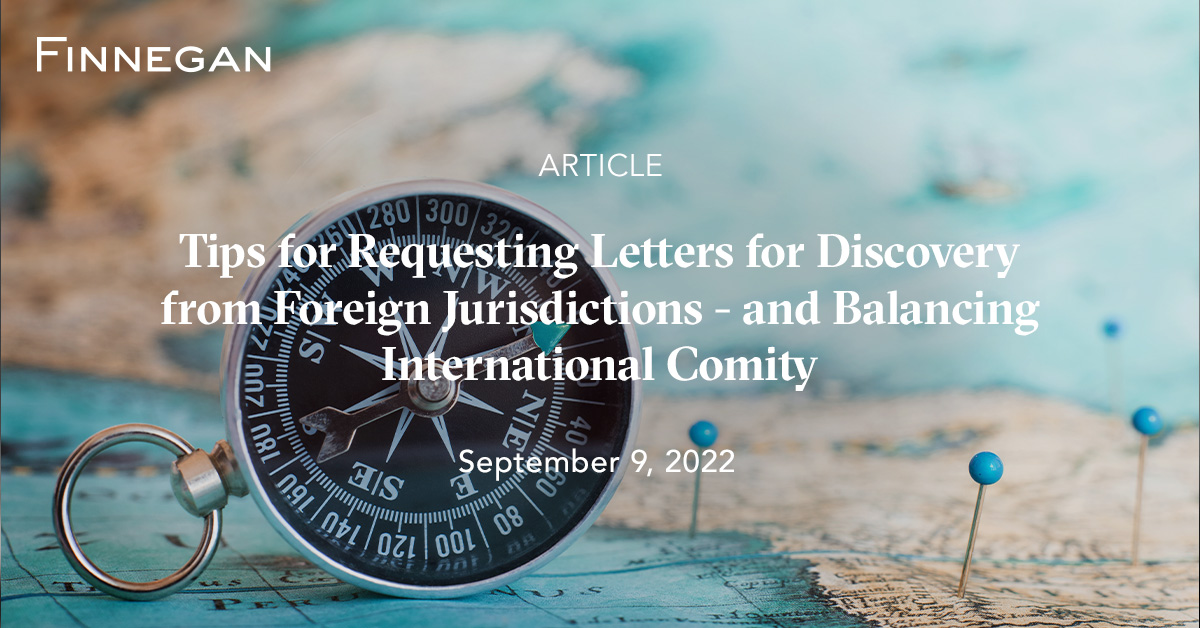What You Required to Learn About Letters Rogatory in Cross-Border Instances

Definition of Letters Rogatory
Letters rogatory are formal requests made by a court in one jurisdiction to the ideal judicial authority in another jurisdiction, looking for help in obtaining proof or serving legal records. This legal instrument is specifically considerable in cross-border cases where straight interaction between judicial authorities is either impractical or not allowed as a result of lawful restraints.
Commonly, letters rogatory are utilized in civil and criminal issues, enabling courts to request the collection of testimony, files, or other important materials from outside their territory. The procedure begins when a court determines the requirement for evidence that can not be gathered domestically. Following this, the asking for court prepares an official letter describing the certain info or action required, ensuring conformity with both jurisdictions' legal standards.
Once sent, the recipient court assesses the request and carries out the necessary procedures according to its own legislations (Letters rogatory). The performance of letters rogatory depends heavily on worldwide treaties and contracts, which promote cooperation among countries. This system emphasizes the significance of common legal aid in promoting justice throughout borders, guaranteeing that lawful processes are not impeded by geographical limits
Objective and Relevance
Helping with international collaboration, letters rogatory serve an important function in the realm of cross-border legal procedures. They work as formal requests from a court in one jurisdiction to a court in one more, seeking help in collecting evidence or carrying out assessments significant to an instance. This device is essential when an event requires to get testament or papers situated outside their very own jurisdiction, guaranteeing that legal processes are not hindered by geographical boundaries.
The importance of letters rogatory can not be overemphasized, as they play a vital duty in promoting the honesty of legal systems across countries. By giving an organized technique for worldwide partnership, these letters help to keep regard for every nation's sovereignty while promoting the exploration procedure essential for fair trials. They also guarantee that evidence is gathered in a way that sticks to the legal requirements and procedures of the requesting jurisdiction.

Process of Issuing Letters Rogatory
The procedure of releasing letters rogatory involves a number of key steps that must be thoroughly complied with to make certain compliance with both domestic and worldwide legal standards. A request for assistance need to be prepared, laying out the particular evidence or testament looked for from the foreign jurisdiction. This request ought to clearly specify the realities of the instance, additional reading the relevance of the evidence, and the lawful basis for the demand.
When the demand is drafted, it is typically sent to a residential court or appropriate authority for authorization. The court might examine the demand to ensure it abides by step-by-step needs and lines up with international treaties or conventions controling common legal help.
Upon authorization, the demand is officially converted right into the language of the foreign territory, as needed - Letters rogatory. Ultimately, the letters rogatory are sent out to the appropriate foreign authority, commonly via main authorities or diplomatic channels marked for such purposes
Difficulties and Limitations
In cross-border legal proceedings, browsing the obstacles and restrictions of letters rogatory can substantially influence the performance of evidence event. One major obstacle is the differing lawful requirements and procedural requirements across jurisdictions. Different nations might have distinct rules pertaining to the admissibility of evidence, which can make complex the implementation of letters rogatory.
Additionally, the moment called for to process these requests can be substantial. Hold-ups in the foreign jurisdiction may impede timely access to important proof, which can jeopardize the overall case. Language obstacles additionally pose substantial difficulties; making sure accurate translation of documents and testimony is necessary however can introduce possible misinterpretations and extra difficulties.
Furthermore, there is commonly a lack of reciprocity in the therapy of letters rogatory. Some territories may not acknowledge or prioritize such requests, leading to prospective rejections or incomplete conformity. Diplomatic or political considerations may likewise impact the determination of an international country to comply, specifically in sensitive cases. These challenges require mindful preparation and consideration by attorneys participated in cross-border litigation.
Ideal Practices for Legal Professionals
Effective methods for attorneys browsing letters rogatory index in cross-border situations can greatly boost the chance of successful proof event. It is essential to thoroughly understand the legal structures and step-by-step needs of both jurisdictions involved. This understanding will certainly aid in drafting a specific and clear demand that straightens with the obtaining nation's legal criteria.
Next, developing strong interaction with foreign lawful representatives can assist in the procedure. Engaging regional counsel who are acquainted with the nuances of their lawful system can offer important understandings and help navigate potential pitfalls. It is also advantageous to include detailed information about the proof sought, guaranteeing that it is pertinent and necessary for the instance.

Final Thought
In summary, letters rogatory offer as a vital system for getting evidence in cross-border lawful matters. Inevitably, recognizing the subtleties of letters rogatory is essential for legal professionals engaged in worldwide lawsuits.
Letters rogatory play a vital role in facilitating the exchange of evidence throughout worldwide borders, serving as a bridge in between inconsonant legal systems. As we check out finest methods and the subtleties of this lawful mechanism, it becomes clear that more information proficiency of letters rogatory is important for effective global legal technique.
In cross-border legal procedures, browsing the obstacles and limitations of letters rogatory can substantially influence the performance of evidence event.Efficient methods for legal experts browsing letters rogatory in cross-border cases can significantly enhance the probability of effective proof celebration.In summary, letters rogatory serve as an essential system for getting proof in cross-border lawful issues.
Comments on “Exploring the Historical Background of Letters Rogatory in Legal Frameworks”